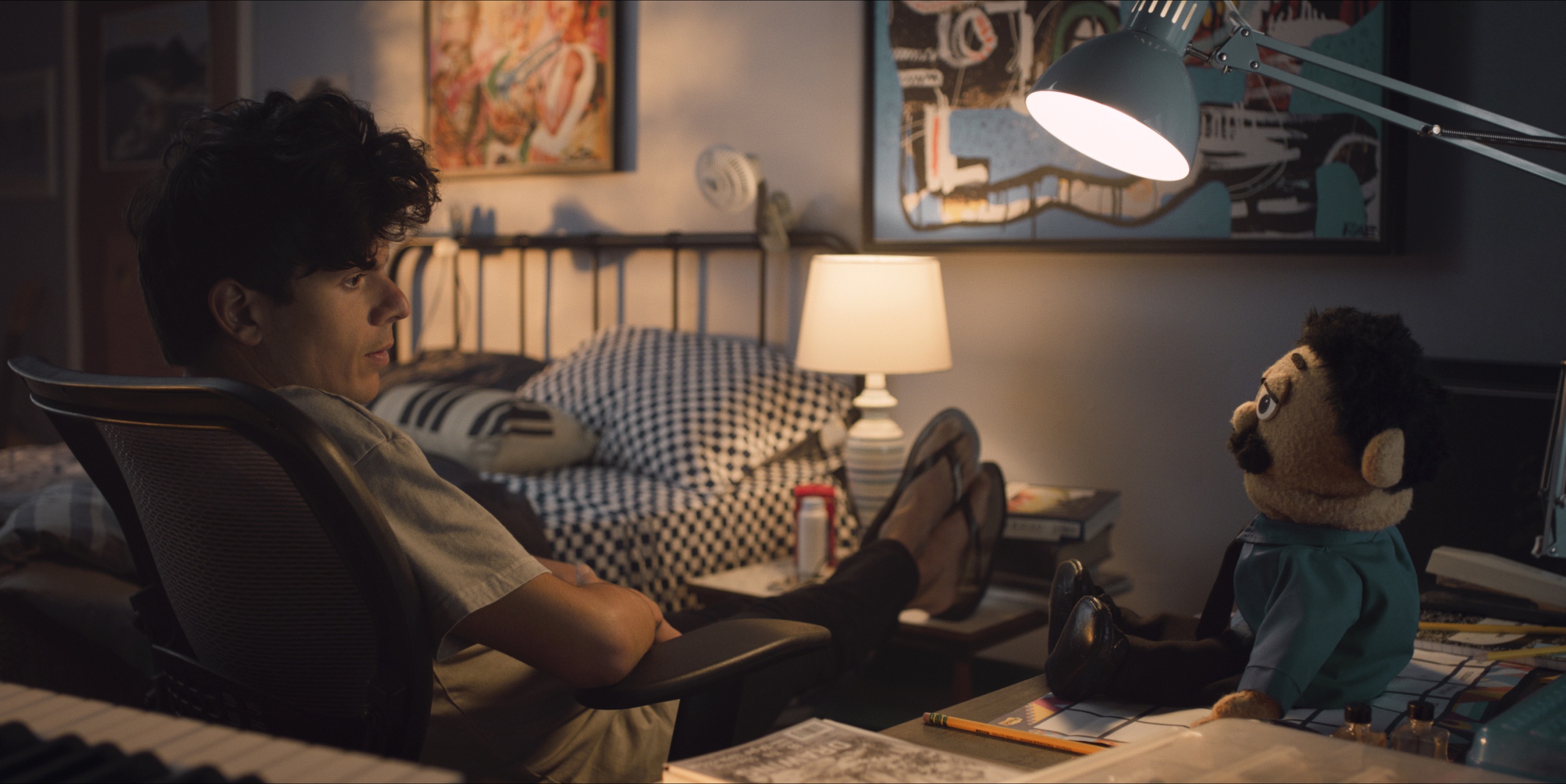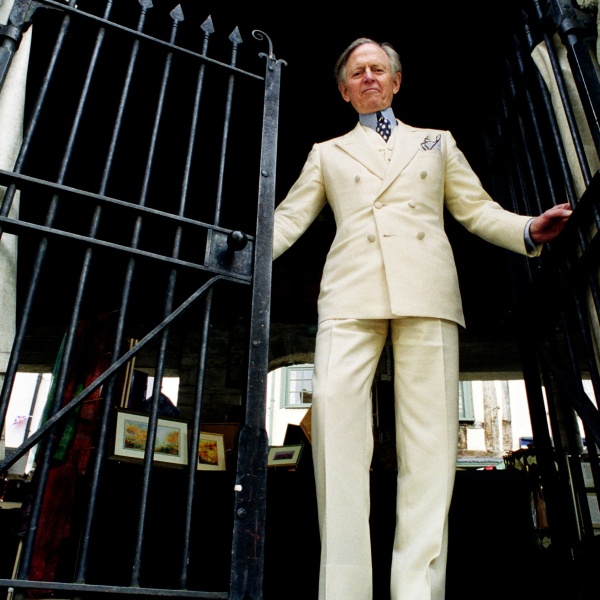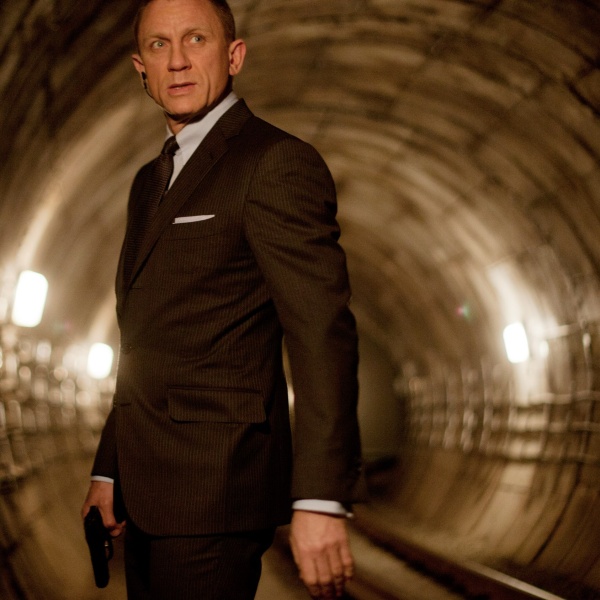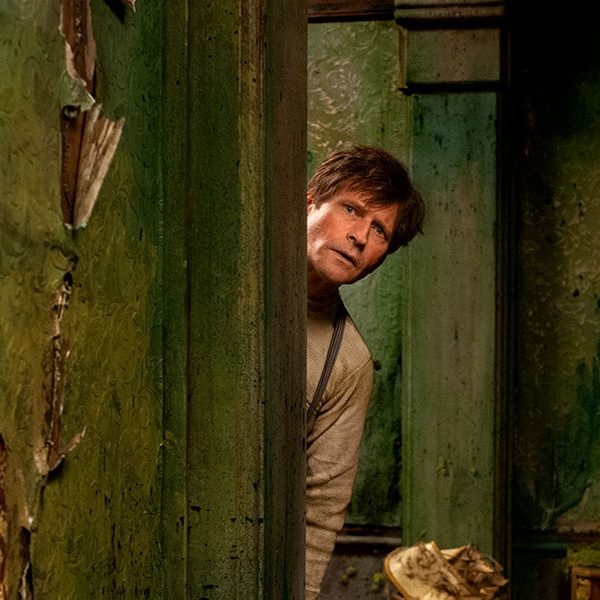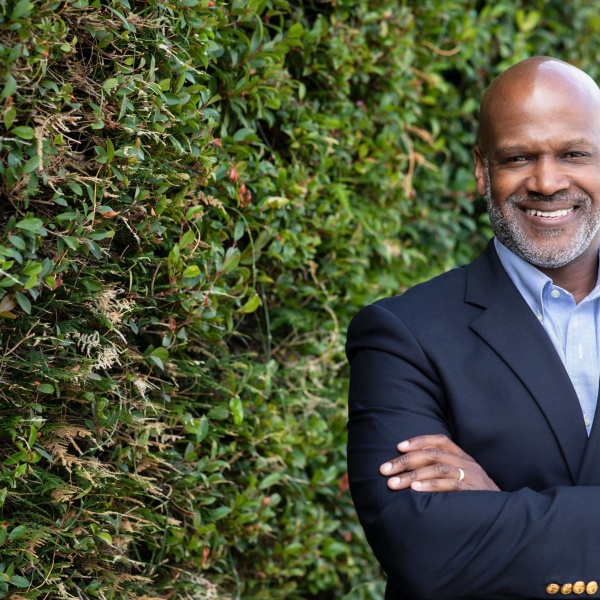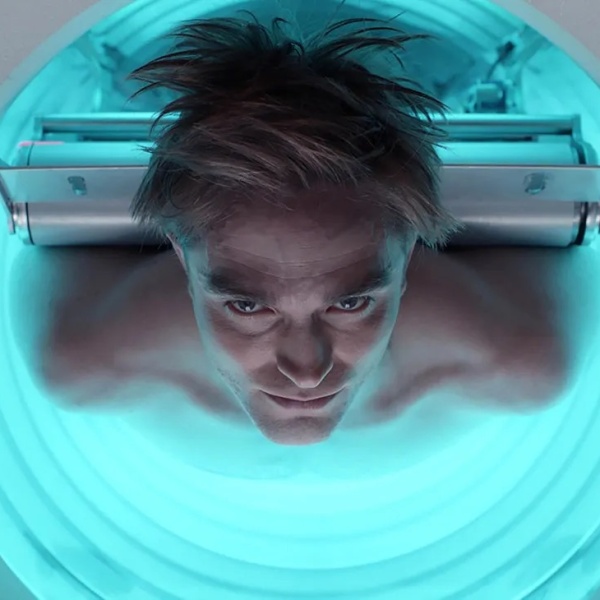Rudy Mancuso did not let himself off the hook when it came to his directorial feature film debut, “Música.” In addition to the sheer number of roles he took on (not only director and co-writer with Dan Lagan’s, but also co-composer, star, and producer), Mancuso had a very specific idea in mind for the look and tone of the musical. If characters in most musicals break into song when words fail, in “Musica,” they break into song when the music becomes too insistent to be ignored.
Mancuso stars as Rudy in the autobiographical coming-of-age story, in which a young man — still living at home with his mother, played in the film by Mancuso’s real mom, Maria Mancuso — sleepwalks through a life that involves a desultory relationship with Haley (Francesca Reale) and halfhearted attempts at launching a career as a puppeteer with shows in Newark’s subway stations. Not until he meets Isabella (Camila Mendes), who understands his singular perspective as someone with synesthesia who hears music in everyday noises, does Rudy feel emboldened to break out of his outgrown patterns.
“Every day had to be a massive challenge and risk. Otherwise, what are we doing here?,” Mancuso told IndieWire. “You can only make your first film once. So I wanted to shoot as high as I possibly could. There were certainly challenges and obstacles on a daily basis, but navigating those challenges was part of the thrill.”
Some of those obstacles are inherent to filming any project (like securing locations in Newark), and others were a byproduct of Mancuso’s story and sensibility. Nowhere is his ambition more fully on display (and realized) than in the musical sequences that erupt into life in public settings, like the diner where coffee spoons and brooms turn into instruments.
The result is a charming, refreshing riff on the genre that captures the breathlessness that characterizes the best musicals while also pointing to new ways forward. Below, Mancuso — who made a name for himself with music and puppetry videos on YouTube — tells IndieWire about balancing his multiple roles and the pleasures inherent in being a multi-hyphenate.

On casting “Música”
It was interesting. I mean, it’s quite literally based on my life and experience, and I knew it so intimately that by the time it came to the casting process, it was a bit odd to be hearing and witnessing strangers reciting dialogue that was so familiar and personal. But it was also a dream come true. It started to feel real that this was an actual production that people were interested in being a part of. So the whole thing was bizarre, but also beautiful.
On directing actors
I got really lucky. I had a really great crew and an incredible cast. Everyone from Camila, who’s not only co-star but co-producer, to J. B. Smoove to Francesca, who plays Haley. They all really elevated the material. They personalized it in a really interesting way, and any time it started to feel like it was going down a conventional path, they would help me break it. I had the unique opportunity to really tailor the roles to the actor.
On ensuring the “Música” set was improv-friendly
I spoke to my DP [Shane Hurlbut] early on and demanded that we cross-shoot as many of the actual dialogue conversations as possible. I had a minimum of two, sometimes three cameras per set-up so that we could have these very natural conversations in real-time, speaking over each other, and let all the nuances of the performance come through. And I think that’s why there’s so much authenticity in the scenes with my mom, for instance, with Camila, because they were all cross-shot, and we were having real conversations as ourselves. The lines began to blur between character and reality.
On directing the musical sequences
To me, that was the most comfortable part because I’d been doing versions of that for years on the internet and a lot of my short and music videos I directed. There was some reverse engineering. I wrote all the music before the script was even finished. I knew what the set pieces were before they were even fully realized from a musical perspective, and there was very little to re-record or overdub. Almost everything you hear in the film was recorded on the day, live. For instance, the diner had about 90 microphones. Everything from a broom to the grill to a pot or pan or a fork had a tiny microphone in it, on it, or around it. So, all those slams, all those hits. They weren’t done in post, they were done on the day.
We called them rhythm performers. We literally had to invent a title because they weren’t quite dancers, they weren’t necessarily musicians. They were rhythm performers creating music out of miscellaneous items. So a lot of them were stompers, or ex-stompers, or street drum corps. And everything you see in the film is happening in real time, like a live show. There was very little cheating. But it made our lives so much easier in capturing it.

On crafting the look of “Música”
Me and Shane Hurlbut worked very, very closely. We had countless sessions conceiving and designing the schematics for all the set pieces. And he’s a scientist who somehow actualized the unconventional ideas that were in my head. I wanted each character to have their own palette. I want, anytime Haley’s on screen, for the temperature to be a little bit cooler, for it to be static and locked off and shallow depth. I want the inverse with Isabella. When she’s onscreen, I want some more grain, handheld, warmth, a lot more depth. And then for the musical set pieces, I want the contrast and saturation to come up. I want the aspect ratio to change. And he was up for all of these very ambitious ideas. And whether the audience even fully realizes that it’s happening, they certainly feel it.
On the puppet show finale
We always knew that we wanted the puppet show to be the catalyst for Rudy’s growth and maturing into somebody who’s a little bit more realized and finally has established their own path for themselves versus one of these external forces in his life doing it for him. What you saw in that montage of the puppet show evolution, going from street to stage, half of that was reshoots. We had a very short amount o days for reshoots, and that was one thing that we all felt was important, the need to shine more light on the evolution of this puppet show and where it goes. It needs to be more than just he took it out of the subway and went to the street. He needs to take it to an actual stage with an actual crew. So, I knew that the puppet show was our big conclusion, but I didn’t know that it would be as big as it ended up being in the film.
On the happy ending
It was important to me that we didn’t fully button up the romantic aspect of the film. There was a version where you could have easily ended up with Isabella. And it was very important to me that it was maybe teased or suggested that she’s still in his life, but not that they ended up together. That happy ending didn’t feel warranted.
“Música” is now streaming on Prime Video.
